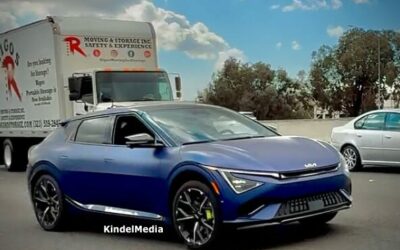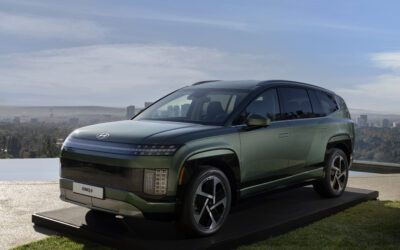The second generation Kia Telluride is already in the works and thanks to our colleagues at ShortsCar we can share a new set of pictures captured near Hyundai-Kia R&D Center in Namyang, in South Korea. Codenamed as LQ2, Kia will add a long awaited Hybrid powertrain that can even improve the great success of the Korean SUV in the U.S. market.
The Telluride Success Story
The Telluride’s journey began with a clear vision: to offer an SUV that resonates with the authenticity and ruggedness desired by North American consumers, coupled with an unbeatable price point. Its success is not just a result of its design or pricing but also Kia’s acute understanding of market needs. Despite its initial conception for local consumption, the burgeoning demand for the Telluride in Korea underscores its global appeal and the brand’s potential for even broader market penetration.
Towards a Greener Future
The introduction of a hybrid model in the upcoming full-change version of the Telluride signifies Kia’s commitment to innovation and sustainability. This move is not merely an addition to the powertrain options but a significant shift towards eco-friendly automotive solutions. According to an exclusive report by a domestic electronic media outlet, the new Telluride, under the development name ‘LQ2’, will embrace a hybrid system, marking a first for the model. Scheduled to start mass production by the end of next year, with sales kicking off in early 2026, this model is set to redefine expectations.

While the front shows EV9-inspired headlights, the rear still have provisional taillights
The Power of Hybrid Technology
The current KIA Telluride model, equipped with a 3.8L V6 Lambda engine, showcases impressive power and towing capacity. However, the shift to a hybrid model is expected to balance performance with environmental responsibility. Sharing its third-generation platform and hybrid system with the Hyundai Palisade, the new Telluride aims to overcome the limitations faced by its predecessors in the hybrid segment. The development of a 2.5L gasoline turbo engine-based powertrain for larger, high-performance vehicles highlights Hyundai Motor Group’s dedication to advancing eco-friendly certification and performance standards.
A Future of Possibilities
With the KIA Telluride Hybrid set to share its underpinnings with the Palisade, it not only paves the way for more eco-friendly certification of large-class vehicles but also promises enhanced performance. The potential for a total output of around 300 horsepower, when combined with electric motors, is particularly exciting. Furthermore, Genesis’s consideration of hybrid powertrains in future models suggests a broader shift within Hyundai Motor Group towards sustainability, without compromising on power or luxury.







